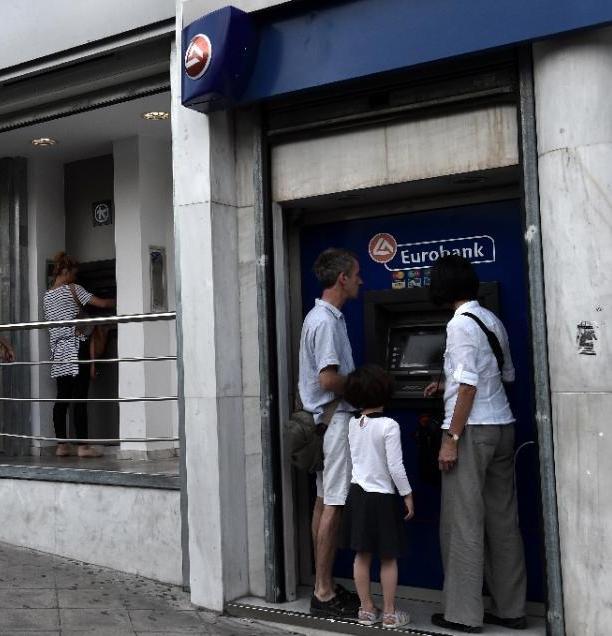Wary Greeks withdrawing cash but no wild bank run
Wary about the introduction of capital controls in case of a failure to agree a bailout deal on Monday, Greeks are withdrawing cash, but with a calm fatalism begotten from struggling through six years of economic crisis. Greeks haven’t been making a sudden run on their banks, having steadily reduced their holdings since December, when the early elections were called that propelled the radical left anti-austerity Syriza party to power. Between December and April Greek individuals and companies withdrew 31.4 billion euros ($35.7 billion). Indications are that the pace of withdrawals has picked up, with at least three billion euros taken out in the past week, according to local media.
Nobody’s stressed out because they’ve already taken it all out!
joked Panos, 23, a delivery man waiting in front a branch of the National Bank of Greece, one of the country’s top four commercial banks
Many Greeks are doubtful that their Prime Minister Alexis Tsipras will reach a deal on Monday with Athens’ EU and IMF creditors on the reforms the country needs to undertake in exchange for 7.2 billion euros in bailout loans. Without the funds Greece will almost certainly fail to make on June 30 a payment of around 1.5 billion euros to the IMF, and therefore faces the very real risk of crashing out of the eurozone. A payment default would prod Greeks to pull out their money on a massive scale, sparking a real bank run. But, as economists have pointed out in recent days, the government would probably try to prevent that by slapping on so-called capital controls – limits on transfers and withdrawals – as did neighbouring Cyprus in 2013 and has only recently removed.

Business greece eu